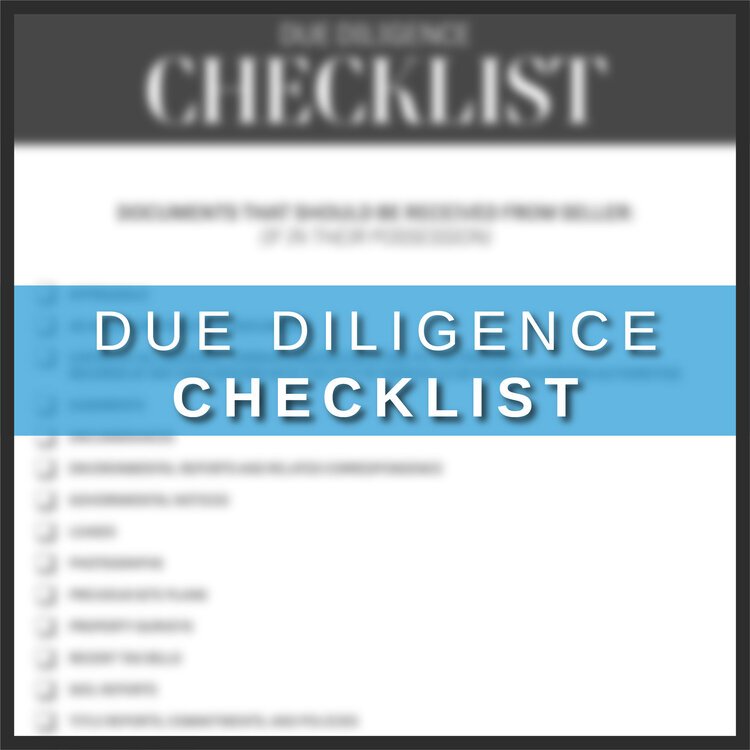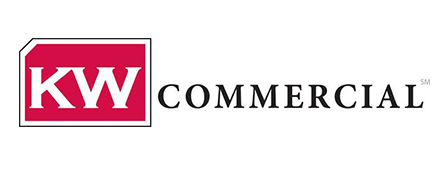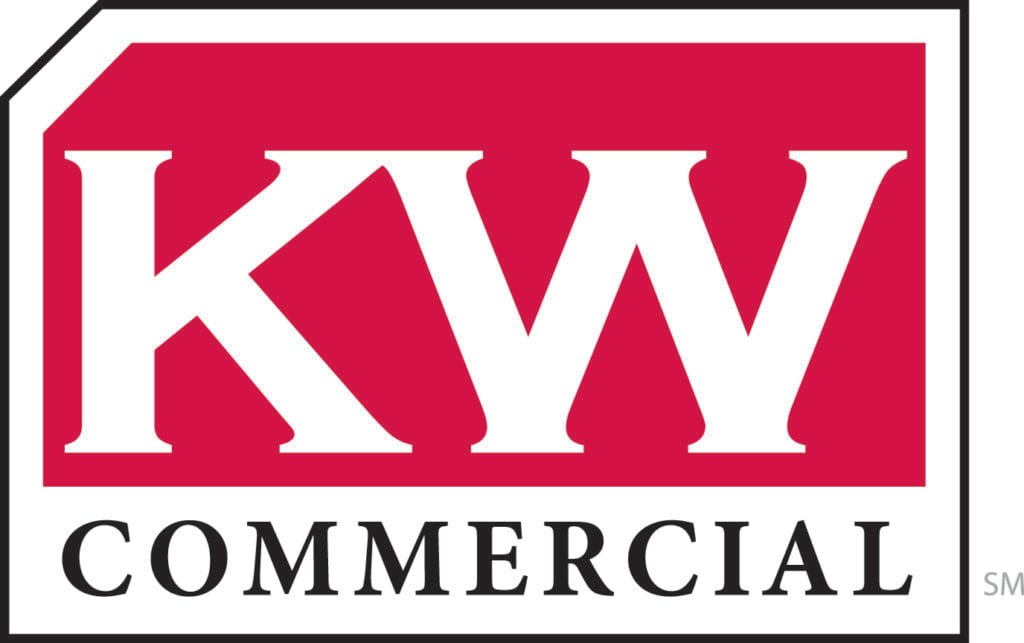Buying commercial real estate can be quite a process, especially if you’ve never done it before.
Maybe you’ve bought a house (or five) over the years, and that experience is helpful. But if anyone tells you that residential real estate deals and commercial real estate deals are the same… turn and run.
If you’re new at this, you want to make sure you’re checking all the boxes, doing everything right.
Having a simple checklist — and sticking to it — could be the difference between making a great investment and losing a lot of money.
So let me take the mystery out of this process for you. It won’t necessarily makes things easier, but it will give you a good overview of the typical deal flow, so you know what to expect.
Here’s the 8-point checklist we’ve used to acquire over $30,000,000 worth of real estate, this year alone…

1. Run Comps On Commercial Properties
In The Area
This should be a very familiar process for those of you who’ve bought and/or sold residential properties.
The easiest way to obtain useful comps is to discuss it with a Commercial Real Estate Broker (though there is no centralized database of this information, Crexi and LoopNet can be good sources) and compare prices on commercial properties currently for sale, that compare with your target property.
You don’t need to get complicated here. You’re merely looking to see if the commercial property you want to purchase is being priced correctly.
What else should you look for? Here’s a few very important questions to consider:
-
Are there high vacancy rates in that area?
-
Does the area support the rents that you’ll need to make the deal work?
-
If you’ll have a lot of competition for rents — what could set your property apart?
-
If comps show that the area doesn’t support your rent needs, is there something that sets this site apart from all the others that will allow you to achieve better rates?
Side note: Low vacancy rates in your area certainly can be a promising sign, but it’s not always a determining factor for success — there may not be enough of a sampling of properties in that area.
So, keep it simple, find a handful of comps, then move on with the checklist…

2. Underwrite The Investment
First, you need to know the math of your deal inside and out.
To do that, you’ll first need to get a few underwriting tools together (you can create these yourself or you can purchase ours here).
Multifamily Underwriting Model
Most investors will use some variation of an Excel spreadsheet where they can type in the deal terms, such as purchase price, estimated rehab, projected rent, and financing. These spreadsheets will then crank out the expected returns for the investor on this deal.
You should also have a “back of napkin” formula that you can apply to any commercial real estate investment to determine whether or not it’s even worth underwriting, since that can often be a very time consuming task.
This “back of napkin” formula can be any single metric that works for you, giving you a quick green or red light. For me, I like to look at the asking price per square foot of the investments I make. Having a background as a commercial real estate broker, I have in-depth knowledge of what market rents are per square foot. By utilizing the prices per square foot on the purchase and rent, I can quickly determine if the deal will make any money.
Now, I do recommend when you first get started that you underwrite every deal you possibly can. This way, you can learn what actually makes a deal work (and not work).
Secondly you can take A CCIM course and work for your designation.
CCIM, which stands for Certified Commercial Investment Member, is a designation offered by the CCIM Institute.
This commercial real estate designation is, in my opinion, comparable to a CPA for an accountant and is basically a master-course on how to invest in commercial real estate. They teach you how to analyze project financials, research real estate markets, determine user criteria, and make investment decisions.
While this designation won’t be important for everyone, the CCIM course is pretty in-depth and you’ll walk away knowing just about everything you need to know about investing in commercial real estate.
It can be tough to learn how to properly underwrite the expenses of a commercial property if you don’t have any historical data on it (or if you haven’t built anything out before), so don’t feel bad about leaning heavily on your own circle of experts.
Speaking of which…

3. Consult With Your Consultants
(Build A Network)
It’s been said that your network is your net worth, and that couldn’t be more true than in the world of commercial real estate.
Your network of professional consultants is one of the most valuable assets you’ll have, as they will guide you throughout the entire process.
Whether you need to redevelop a site, renovate a building, lease up existing space, or even go through an entire rezoning process, your network of consultants can simultaneously save your bacon from disaster and exponentially increase your return.
So, what kinds of consultants should you have? Glad you asked…
Mentor / Advisor
Potentially the most important person in your network, your mentor and/or general advisor should have years (preferably decades) of experience under his or her belt. This is a person who’s “seen and done it all,” who isn’t spooked by anything that comes up, and can advise you at every point you need it in the process. Your mentor can also be invaluable in filling out the rest of your consultant network with competent professionals.
General Contractor
Similar to your mentor above, but in the realm of actual construction and building. Your general contractor should be able to help you navigate the labyrinth of permitting, building and/or renovation, timelines, subcontractors, and more. If you have a question about anything from flooring to the old well in the back of the property, your general contractor should be able to give you an answer, or find one.
Commercial Real Estate Broker
Get on a broker’s email list and review every email they send. Underwrite and tour every property that closely fits your criteria. But most importantly, have conversations with them about the properties. Why do they like this site? What are the drawbacks? What is their anticipated OpEx? Brokers want to bring you deals (they can also help with comps) that will be successful so they can continue selling you properties in the future.
Commercial Real Estate Attorney
Hiring an attorney that specializes in commercial real estate is an absolute must in my mind. Not only do commercial real estate attorneys review and negotiate purchase and sale agreements on your behalf, they also check to make sure that the property doesn’t have any zoning restrictions, land-use issues, environmental issues, and they can also help you negotiate your loan agreements.
Property Manager
Having an outstanding property manager on your side makes all the difference when you’re investing in commercial real estate. I highly recommend keeping a property management fee in your underwriting, regardless of whether or not you intend to hire a management company. You never know what could happen and if the deal doesn’t work with a management fee, it probably doesn’t work at all. Property managers will be able to walk through and assist you during your due diligence just like a contractor would. They can help, along with your broker, point out the pros and cons for tenants and any issues that may arise during your acquisition of the property.
Market Studies
You may not always need someone to perform an in-depth market study in order to determine what the site could be best used for, it just depends on the deal. Going back to the last section, market studies can be very valuable in finding an edge over your competitors in the area, and the right study just may spark an idea in your mind you wouldn’t have thought of otherwise.
Other Contractors in Your Network
This list could get pretty long, but the last thing I want to do is discourage you. You don’t need the following consultants in your network, but, the more the merrier. If you want to be totally covered, your general contractor or mentor should have access to experts in Architecture, Engineering, Environmental issues, and Surveying.

4. Meet Your Banker And/Or Equity Partners!
First, do your research.
Research and then meet with multiple lenders at multiple banks to find the right terms for your deal. Never forget that there are nearly endless lending institutions out there. If one doesn’t seem right — from either side of the table — get up, walk out and get back on the phone!
Once chosen, you’ll meet your banker/lending partner many times throughout the purchase process, but it is absolutely essential to do so early on, because you need to know if your lending partners are truly interested in lending on the deal.
Not only that, but you need to build a good working relationship with your lender because they’re the one that will go to bat for you with the loan committee.
PRO TIP: Get your lender on the phone and throw out a high level “Hey, this is what we’re paying, this is our plan, here’s what we project in rent” type of conversation… just to get a quick yes or no.
That alone could save you days or even weeks on the backend of the deal.
Generally, we like to have term sheets from at least 3 banks in any given deal. That’s not always possible, depending on the type of project, but it’s definitely a “nice to have.”
Once you’ve gotten further into the project, you’ll want to put together an actual lender package to really help the lender sell the deal. Remember: Your lender has run all this by a committee for final approval, they may be 100% on your side, but they have to convince the rest of the bank. Help them do just that!
Lastly, commercial lenders will have specific underwriting criteria that can help you determine if a deal makes sense. Chances are good that if you’re unable to get approved by multiple commercial lenders, it’s probably not a deal.
And what about other types of equity partners? Well, there’s strength in numbers.
That’s the basic principle of how we do the majority of our deals, Real Estate Syndication.
Similar to partnering with a more traditional bank lender, if you don’t possess all of the capital you’ll need to complete your deal yourself (or if you want to limit your overall exposure into any single deal), you’ll need to raise capital from third-party investors.
And honestly, the simple practice of getting more eyes on your deal to make sure you’re making the right choice is always a wise move.
So yes, we syndicate the majority of our deals, meaning we have an investor list that we invite to all of our deals, in order to potentially raise capital from them. This is a win-win kind of thing, we take the smaller “friends and family” route so that we can democratize commercial real estate investing for all who have the means and the desire.
After all, it’s way easier to buy a shopping center together with 10-20 other investors than it is on your own!
Similarly (and even more simply), you could also just grab a couple of friends to fund your project — this is something I’ve done several times with 2 or 3 interested and qualified friends.
That said, if your project is big enough, you may be able to attract a private equity firm, a family office, or other equity partners that you can bring together.
Bottom line, your funding might already exist in your current network of friends, family, and acquaintances, so get out there and start talking to them about your deal! They may be waiting for an unforeseen investment opportunity just like yours.
If you want to join us as an investor (you don’t need to be accredited), we’d love to chat with you. You can reach out and start that conversation anytime.

5. Do Your Due Diligence!
If you fail to conduct serious due diligence on all aspects of your deal, you’re potentially throwing money on a massive backyard burn pile.
I get it, things move fast, the stats are right there in the marketing materials!
Unfortunately, things are not always what they seem. DO NOT SKIP THIS STEP.
The last three commercial acquisitions I’ve worked on ALL had significantly different actual square footage than what was advertised on the tax records and in marketing materials.
If we hadn’t gotten out there in the field and measured everything out ourselves, we would’ve been overpaying for the buildings and gotten less in rent (because this rent was based on a price per square foot)!
Don’t rely on public records or what the seller and their team is telling/selling you, perform your own due diligence and make sure you know what you’re buying.
Want a comprehensive and super easy-to-use due diligence checklist that can save you an incredible amount of time and money?
Download My Free Due Diligence Checklist.

It provides a complete framework for everything you need to have eyes on during your deal, including the sixteen types of documents you should be receiving from the seller and detailed checklists for each of the five main sectors of due diligence (environmental, operational, physical, financial, and legal).

6. Compile Your Presentation And Pitch
Time to sell, my friends.
But don’t worry, this part doesn’t need to be as scary as it seems.
Once you’ve done your due diligence on the property and properly compiled all the data you’ve collected into an Offering Memorandum and Lender Packet, it’s time to shop it around and start getting actual commitments from both investors and lenders.
This is the most important part of this process, after you’ve determined that the deal can work. After all, there’s no project without the money!
So, how do you get this done?
First, get your mind right. The most common objection I hear goes something like, “I’m not comfortable asking people for money.” Good. I’m not telling you to ask anyone for money.
You’re offering them an opportunity to multiply their money. That’s exactly why they became investors in the first place! Operators that find investment opportunities are very valuable to investors because they often don’t have the time to find and operate these investments on their own. You’re collaborating with your investors.
Remember, investors are out there HOPING you’re about to bring them the deal of the decade. So find great deals and walk into meetings with the confidence they want to see!
Second, don’t just tell an investor you have a deal and then give them the address.
Prepare for the meeting, work hard to produce a beautiful and accurate pitch that tells the compelling story of the deal, one that includes the investor in that story.
Here’s the five things your pitch must include:
1. An Offering Memorandum
An offering memorandum is a legal document that describes:
-
Your Objectives
-
The Risks Involved
-
Terms for Investment
-
The Team
-
And Financials
My last offering memorandum was around 11 pages, as these documents should be very thorough and cover any and all information about the property possible.
Remember — investors will be reviewing your OM to decide whether or not they should invest capital with you. Make the most of each opportunity.
There’s an old saying when it comes to the art of persuasion: Show, don’t tell.
As I said earlier, don’t just give an investor the address and tell them your general idea.
Show them.
Explain to them how you’re going to return their capital with the expected gains.
Questions you need to answer when explaining the offering memorandum:
-
Why do you like this property?
-
What is your investment strategy?
-
Why is that your chosen strategy?
-
Why will that work with this location?
Framing your pitch with those questions in mind will help you focus on the benefits, not the features, of your real estate offering.
2. Evidence Of Your Experience
Your offering memorandum ought to highlight your operational history.
This is your track record.
Investors need to not only trust you as an individual, but also have faith that you know how to accomplish the goals for the investment. How many deals have you done in the past? What obstacles have you overcome to complete successful projects? How much monetary value have you acquired in commercial real estate in the last year? Answering these kinds of questions will go a long way toward building their faith in you and your ability.
Experience is everything when taking on these projects. But how do you show off experience if you’re just getting started?
You could get a job in property management or as a commercial real estate broker for a few years, which will help you learn different investment strategies from the ground up.
Or, you could build a team.
3. An Introduction To Your Team
Your team might just be the most important factor by which an investor decides to give you capital or not.
It’s all about the team. A good team can make a bad deal work, a bad team can make a good deal fail.
This all goes back to trust and relationships.
Investors are often placing their capital with the team, not the deal.
Surprising? It actually makes sense, though.
Using one of the most famous examples today, Barbara Corcoran chooses to invest in people (or not) via their personalities and product pitches in Shark Tank.
You need to show your investors that you’re surrounded by people that are full of grit and will find a way to make the deal work.
4. The Proforma
Show your financial calculations for the investment.
How much will renovations cost? When will cash flow reach stabilization? What are the anticipated operating expenses for the property?
Investors like to see that you’ve thought through all of the numbers.
The better you know your numbers, the better chance you’ll have at raising capital.
I also like to give my investors a “good, better, best case scenario” so they can see the different possible outcomes and what we’re aiming to achieve.
—–
Need a little more instruction on pitching your project? Check out my video How to Absolutely Crush Your Investor Pitch…

7. Finalize The Administrative Paperwork
And Close!
You knew this one was coming.
Yes, there’s a lot of work to be done before you can close on your property, and I won’t drone on about the entire list of documents that need to be in order and executed, remember your Commercial Real Estate Attorney back there in #3? This is where they earn their money!
So, yes, consult with your attorney, but here’s a quick glimpse of some of the items you’ll need to have executed so you can close on your commercial property…
-
Operating Agreements
-
Title Documents
-
Zoning Regulations
-
Insurance Documents
-
Private Appraisal
-
Hazardous Materials Survey
-
Formed Entities
-
Closing Statement
-
And more!
Right, this can become a very long list. Again, if you’ve ever purchased or sold a residential property, you’ll be familiar with the two-foot stack of papers in front of you at closing.
The good news is, though you want to have your eyes on everything, my advice is to let your trusted professional step in at this stage.
That can be the Commercial Real Estate Attorney of your choice, or it can go another way. If all of this is leaving you with a feeling of overwhelm, read the next and final section of this article…







